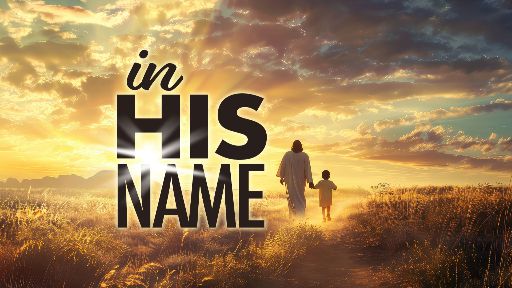-
New Clothes, New Name, New Hope
Contributed by Peter Fisher on Jan 6, 2021 (message contributor)
Summary: the way Jesus changes us, with New Clothes, New Name, New Hope
? Introduction
These readings are appropriate for the time of year, not just because they are talking about Jesus’ birth, but because they have lots of new things in them, and we all love getting new things at Christmas. I’m going to talk about new cloths, new names and new or at least renewed hope.
? Isaiah
Our reading from Isaiah seems to be split between two voices. Verses 10 & 11 of chapter 61 are spoken by a personified Zion from the point of view of Isaiah’s readers. I’m not going to go into the arguments for or against this in the commentary, as that is too technical for a Sunday morning. In chapter 62 the Lord is talking.
? Zion dressed up
Zion, Israel, if you like, it makes no difference for our purposes this morning has been dressed in new clothes. He (Israel, the nation) has been clothed in garments that look like salvation and righteousness.
? Effect of Clothes
How we dress has an effect on how we behave.
(It certainly does when I am wearing my robes, because I can’t walk fast without fear of falling over) You can see that from the very early days, when small children dress up in adult clothes, or put on the clothes of their favourite TV character. Then they can ‘be’ the character they’re dressed as. Later on, if they are involved in the theatre at all, they may use the costume to help them become the character they are playing.
This is at the root of the discussion about how we should dress for work – in the office. Very formal dress should make for a very professional approach, or at least a more professional approach. You may think that works or maybe it doesn’t, but it speaks to the understanding that the cloths we wear affect the way we behave.
? Wedding Clothes
In our reading the clothes mentioned are those for a special occasion – a wedding. Both the bride and the groom are expected to dress a certain way, that’s as true in our culture as it was in Isaiah’s. Once suitable attired they become the person that they desire to be – the bride and the groom.
Now, with Zion correctly dressed, looking to the world as salvation and righteousness, we see the expectation that they will grow into the image they are now portraying. Zion will become a righteousness nation, praising God and all the world will see it.
? Bride & Groom Image
The image of the bride and groom is picked up in the next chapter, just after our reading ends, where Hephzibah means “my delight is in her” and Beulah means “married”.
? Zion’s Hope
That is Zion’s hope, their expectation about how their fresh start with God will turn out.
? Isaiah 62:1-3
Then the Lord replies, supporting everything that Zion has said. He will speak for them and vindicate then. He will be sure that the nations will see what He has done. He will re-brand them – give them a new name, so that the nations can see that there is a difference.
? Names
Names are powerful. A name is an indication of a character trait. Choosing a name for a baby is fraught with problems, and most of us parents spent ages looking at name definitions and meanings before we made our final choices, even when those were the ideas we had at the start.
When writers choose names for there characters they are doing essentially the same thing. Trying to understand what the readers will understand about the character. It’s the same for actors picking a stage name.
? Names and new names
It’s much more important in the Bible though, where God has a reputation for changing the names of those he calls. Once God calls them and they accept the call, they are new people, so its appropriate to change their name. Think of Abram and Abraham, Saul and Paul. Here the promised new name will change the way the nation is perceived forever, it will play a big part for them in reflecting God’s glory to the world.
? Luke
Before we look for similar messages in the Luke reading (and they are there) let’s take a look at some of the details.
? Shepherd’s reputation
I expect you all know the story of the shepherds, we only heard the last part of it this morning, the first part starts at verse 8. Shepherds in first century Israel have had a bad reputation among 20th century preachers, who considered them the lowest of the low, and despised by the good citizens around them. That may be a bit of an extreme picture, the shepherds certainly represent the poor, because they have a difficult job and often live away from the rest of society. In our reading it says “all who heard it were amazed at what the shepherds said to them”. It doesn’t say “all who heard it were amazed that the shepherds had such a message”.

 Sermon Central
Sermon Central



